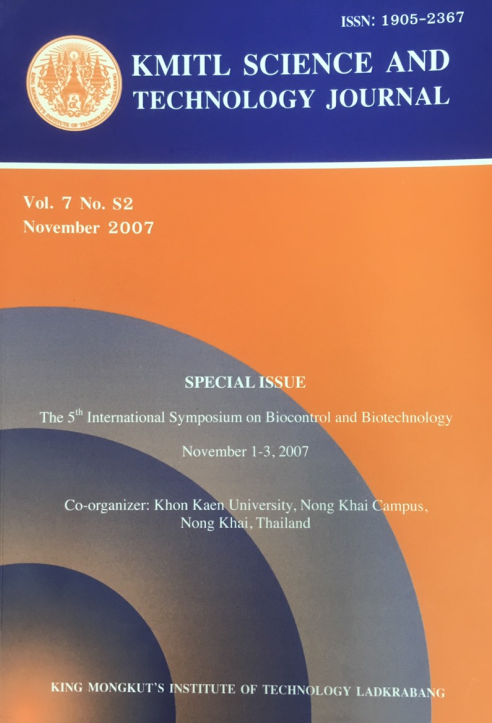The potential of using Jerusalem artichoke (Helianthus tuberosus L.) grown in Thailand as substrate for fuel ethanol production was evaluated in this study. Chemical composition analysis of the plant juices extracted from its tubers was investigated and the results reveal that its contained 256.3 g/l total sugars, 74% of which is inulin. The plant juices also contained several minerals essential for growth and ethanol fermentation by ethanol-producing microorganisms. The highest mineral contents were nitrogen (2,431.5 mg/l) and potassium (2,491.8 mg/l). The batch ethanol fermentation of the acid hydrolyzed plant juices using Saccharomyces cerevisiae was determined and the maximum ethanol concentration, ethanol yield, and ethanol productivity of 88.1 g/l, 0.45 g/g, and 1.84 g/l.h, respectively, were obtained under the optimal conditions: 250 g/l initial sugar concentration, pH 5.0-5.5 and 108 cell/ml initial yeast cell. The conversion efficiency of the fermentation of Jerusalem artichoke juices was approximately 88% of the theoretical ethanol yield.
Keywords: Jerusalem artichoke, ethanol fermentation, Saccharomyces cerevisiae
Corresponding author: E-mail: panpak_2@hotmail.com
Thanonkeo, P. ., Thanonkeo*, P. ., Laopaiboon, L. ., Laopaiboon, P. ., Yunchalard, S. ., Kaewkannetra, P. ., & Thanonkeo, S. . (2007). THE BATCH ETHANOL FERMENTATION OF JERUSALEM ARTICHOKE USING SACCHAROMYCES CEREVISIAE. Current Applied Science and Technology, 93-96.

https://cast.kmitl.ac.th/articles/86818